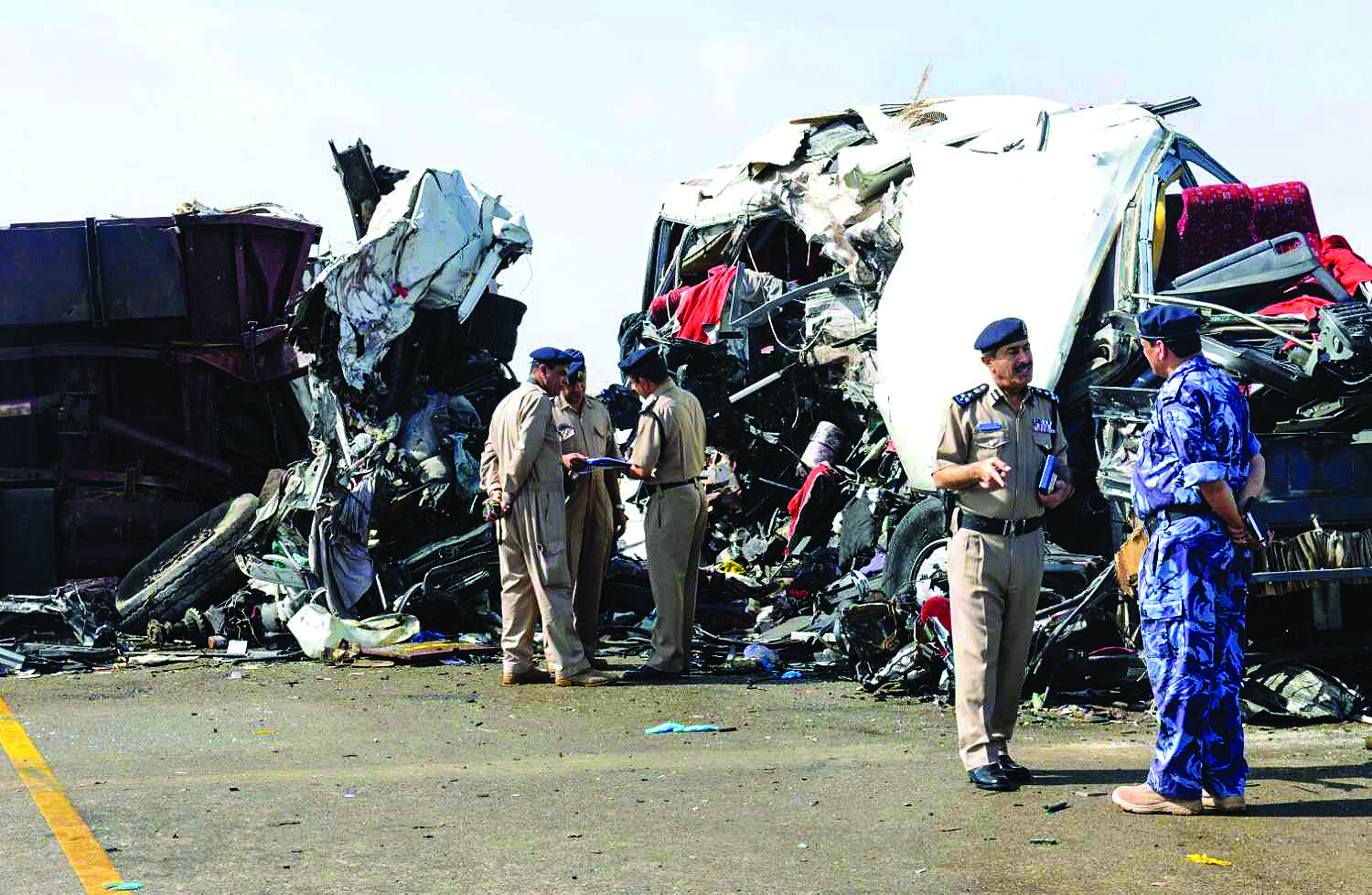
Muscat: One of Oman’s most lethal roads needs to be upgraded to a safer dual carriageway, local politicians say.
The Ibri-Fahud road can lay claim to being one of the most dangerous roads in Oman.
Eighteen people lost their lives in a single accident in March and a further 14 were injured after a tour bus and truck collided.
The accident took place when a Salalah-Dubai passenger bus collided with a truck and a car at a roundabout on the road connecting Fahud and Ibri on March 1, 2016.
At the time, the government met with local roads officials to draw up safety upgrading plans, including converting the road into a dual carriageway or at least, as locals have demanded, more speed breakers.
Eight months after the accident, the road remains the same.
Salim Al Sarkhi, head of the Project and Maintenance Department at the Al Dahirah Municipality, confirmed that the road has not changed since the accident.
“It is still a one-way road. We urge the authorities to make it a dual carriageway,” he said.
Sultan Al Abri, a Shura member from Ibri, suggested a wider area for shoulders and more lanes on the road. “This will help curb accidents,” he said.
The accident had happened as a bus of the Gulf Transport Company (GTC) headed to Dubai from Salalah and a truck headed to Salalah from Dubai crashed into each other.
A senior official of Gulf Transport Company (GTC) said the road has to be made dual as demanded of the people since the tragic crash.
“Though the Royal Oman Police is doing well trying to educate people, still many people are driving crazily on this road,” he said.
Shauakat Hassan Al Balushi, the Omani driver of the ill-fated bus, had earlier described to the Times of Oman that the Ibri-Fahud single-lane road stretch is risky for driving.
“Even a small mistake can lead to a disaster on these roads.”
“Accidents can happen at any time as there are no street lights,” Al Balushi, a Muscat resident, who has been driving heavy vehicles for the last two decades, said.
Using the Fahud-Ibri road saves time for motorists travelling between Ibri and Dhofar. “This means drivers can avoid the Adam-Nizwa-Thumrait road, and as there are fewer vehicles, a lot of people tend to speed on these highways,” one driver said.
Experts said motorists need to be alert throughout this road as the road passes through many small coastal towns and villages, where pedestrians sometimes cross the road.
“Though there are speed breakers on the road, it would be better if we have more,” one resident of Ibri said. The highway is not fenced off and there are warning signs that animals cross the road to the other side to graze.
“Though this road cuts short the distance, I have seen so many terrible things and there is no end to this senselessness among some of the drivers,” said Monoj, an Indian expat who often takes this road.
Following the crash, Majlis Al Shura members held a meeting with top officials of the government officials to address the issue.
The suggestions from Shura members included better maintenance of the road, proper lighting arrangements and earmarking a wider area for shoulders along the road.
The Ministry of Transport declined to comment.